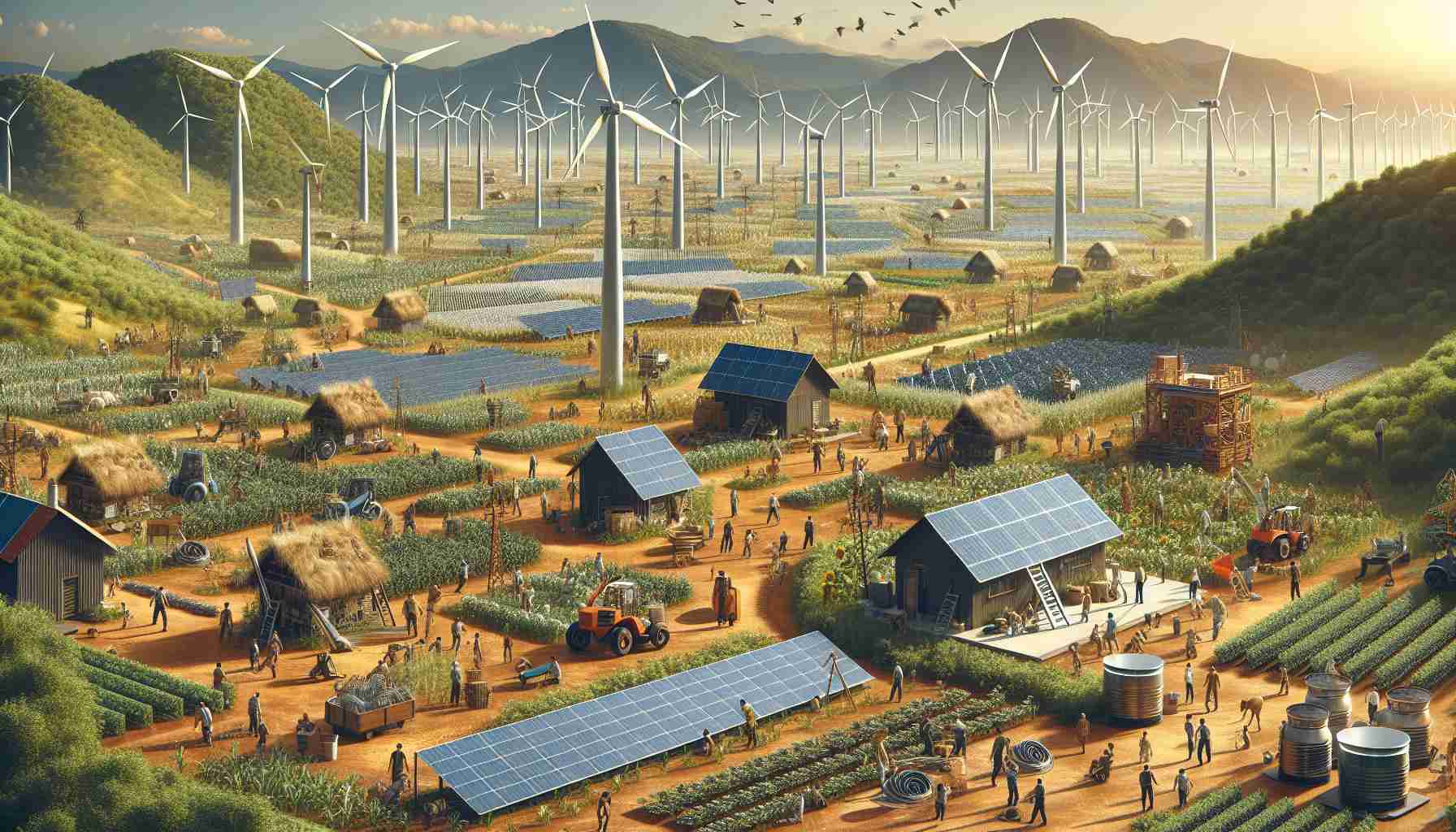A Stride Towards a Greener Future
Türkiye is making impressive advancements in its ambition to achieve net-zero carbon emissions by 2053. A significant focus of this initiative is the substantial investment in energy storage systems, reflected in the recent approvals from the Energy Market Regulatory Authority (EMRA). The allocation of 35 gigawatt-hours (GWh) for grid-scale energy storage projects signals a robust commitment, backed by an estimated investment of $10 billion.
The timeline for these critical energy storage projects is set to accelerate, with ramped-up investments expected by early 2025 and operational systems anticipated by 2026. This approach aims to store surplus energy generated from renewable resources such as wind and solar, thereby optimizing energy utilization during periods of low production.
The President of the Energy Storage Industries Association emphasized that the swift finalization of regulatory frameworks is vital for expediting these investments. The publication of a draft regulation is a step forward, yet the urgency remains for the finalized version to facilitate rapid implementation.
Türkiye’s energy storage capacity is currently focused on grid-scale projects, contributing to a larger global landscape, which has surpassed 150 GWh in investments. The country aims to extend its reach by initiating installations in several European nations, capitalizing on its strategic geographic location.
Local manufacturing and management of energy systems are crucial to maintaining sovereignty over energy resources, according to industry leaders. Upcoming events like the Energy and Storage Future Congress will further highlight Türkiye’s ambition to become a major player in regional battery technology. These initiatives are redefining Türkiye’s role in the green energy revolution.
Türkiye’s Vision for a Sustainable Energy Future: Insights and Innovations
A Stride Towards a Greener Future
Türkiye is actively working towards its ambitious goal of achieving net-zero carbon emissions by 2053, with a particular emphasis on enhancing its energy storage capabilities. Recent approvals from the Energy Market Regulatory Authority (EMRA) have opened the door for significant investments in energy storage systems, with an allocation of 35 gigawatt-hours (GWh) designated for grid-scale projects—an investment valued at $10 billion.
Key Features of Türkiye’s Energy Storage Initiative
– Investment Timeline: Turkey’s energy storage projects are set to ramp up investments by early 2025, with systems expected to become operational by 2026. This timeline showcases a proactive approach to energy management.
– Focus on Renewables: The initiative aims to leverage surplus energy from renewable sources like wind and solar, optimizing energy usage during low production periods and increasing national energy efficiency.
– Regulatory Frameworks: Industry leaders stress the importance of swift regulatory approvals. The anticipated publication of finalized regulations will be crucial for facilitating rapid investment and implementation of these energy storage technologies.
Pros and Cons of Türkiye’s Energy Storage Strategy
Pros:
– Sustainability: The significant investment in energy storage enhances Türkiye’s ability to utilize renewable energy efficiently, contributing to a reduction in carbon emissions.
– Energy Independence: Local manufacturing and management strategies will bolster energy sovereignty, reducing reliance on foreign energy sources.
– Economic Growth: The initiative can create new jobs and stimulate economic activity within the green technology sector.
Cons:
– Initial Costs: The high upfront investment required for these projects may be a barrier, necessitating substantial financial commitment from stakeholders.
– Technology Challenges: Deployment of cutting-edge energy storage systems may encounter technical difficulties, requiring ongoing research and development.
Market Trends and Innovations
The demand for energy storage systems worldwide has surged, with global investments exceeding 150 GWh. Türkiye is strategically positioning itself to tap into this expansive market, eyeing installations in several European countries due to its advantageous geographic location.
Innovations in battery technology will play a key role in enhancing the performance of energy storage systems. Upcoming events, such as the Energy and Storage Future Congress, will serve as platforms for Türkiye to showcase new technologies and collaborations designed to elevate its role in the green energy revolution.
Use Cases and Future Predictions
The stored renewable energy can be utilized in various applications, particularly in powering urban infrastructures, electric vehicle charging stations, and enhancing grid stability. As energy storage technologies evolve, Türkiye may also become a leader in exporting advanced energy solutions.
Looking ahead, it is expected that Türkiye will increasingly integrate energy storage into its broader energy strategy, leading to enhanced energy security and resilience against external disruptions.
For more insights on Türkiye’s renewable energy initiatives, visit enerji.gov.tr.
